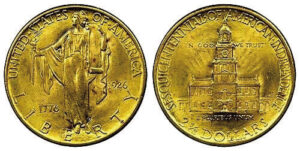Juneteenth deserves your attention
Who among us doesn’t love a good holiday?
People’s favorites vary, of course. According to Statista, a company that shares statistics, reports and insights from around the world, Thanksgiving tops the list for Americans. It’s closely followed by Memorial Day, Christmas, Veterans Day and Mother’s Day.
Further down Statista’s list are beloved celebrations like Easter, Halloween, New Year’s Eve and St. Patrick’s Day. Still other lesser favorites include Martin Luther King, Jr. Day, Father’s Day and Labor Day. Least-loved, according to Statista, are April Fool’s Day at 49 percent and the Muslim observances of Ramadan at 37 percent and Eid al-Adha at 24 percent.
Juneteenth, which became a national holiday in 2021, didn’t make the list at all.
A combination of the words “June” and “nineteenth,” Juneteenth became an official federal holiday June 17, 2021, thanks to a measure signed by President Joe Biden.
Although its legacy as a national holiday is short, Juneteenth has a long history of being celebrated by at least a portion of the population – dating back to June 19, 1865.
The holiday commemorates the day when enslaved people in Galveston, Texas, learned they had been freed — fully two years after the Emancipation Proclamation was issued during the Civil War.
As the National Parks Service page explains, President Abraham Lincoln’s Emancipation Proclamation was not immediately enforceable in slaveholding areas still under Confederate rule.
As Union troops moved through the South, they brought the news of emancipation with them – and the ability to enforce the order through military might. In April 1865, Confederate Gen. Robert E. Lee surrendered to Gen. Ulysses S. Grant after the Battle of Appomattox Courthouse in Virginia, but it was not until June 2, 1865, that Confederate Gen. Edmund Kirby Smith surrendered the Trans-Mississippi West, making way for troops to land at Galveston, Texas, and confirm the news that the Civil War had ended and enslaved African Americans were now free.
“In the years before Granger’s landing, news of the proclamation was slow to reach Texas and did not reach some quarters at all,” explains the NPS. “In other places, the news was hidden by slaveholders to preserve slavery. One of Granger’s first acts was to announce freedom for African Americans.”
So “Juneteenth” got its start as a celebration there in Galveston. It grew during the years following the Civil War, with many formerly enslaved African Americans and their descendants making anniversary pilgrimages to Galveston.
Although the 13th Amendment to the U.S. Constitution in December 1865 ultimately abolished slavery in all areas of the nation, Juneteenth captured the jubilation of the end of slavery in the Confederacy.
As expressed by Juneteenth.com, the holiday “commemorates African American freedom and emphasizes education and achievement. It is a day, a week, and in some areas, a month marked with celebrations, guest speakers, picnics and family gatherings. It is a time for reflection and rejoicing. It is a time for assessment, self-improvement and for planning the future.”
It’s even been called our country’s “second Independence Day.”
According to the 2020 Census, 25.8 percent of Alabama’s population is African American. Franklin County’s percentage comes in near the bottom, among all Alabama counties, at 4.5 percent. But this day isn’t just for African Americans. It’s for all of us. It’s the anniversary of the end of a dark period in our history – a history that belongs to all of us.
The National Museum of African American History and Culture notes that although Juneteenth has long been celebrated in African American communities, it still remains largely unknown to many Americans.
But that’s changing – and we can be part of that.
Give Juneteenth your attention this year.








